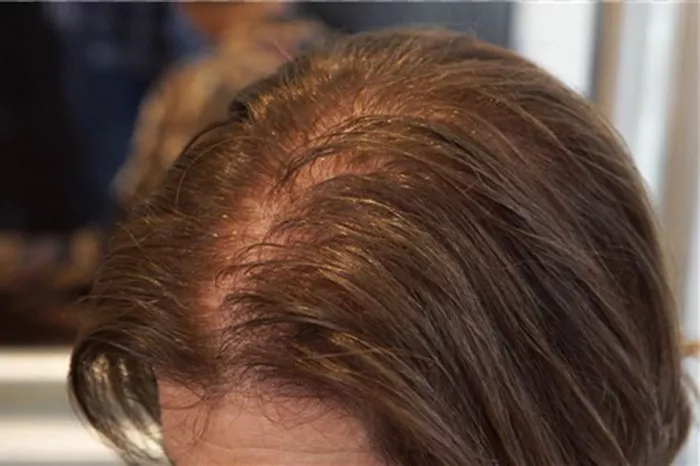Hair loss can be a distressing concern for many, and when it’s linked to thyroid issues, the situation can become even more complicated. In this article, we’ll delve into the question of whether thyroid-induced hair loss is reversible. We’ll explore the causes of thyroid-related hair loss, the steps you can take to address it, and the potential for regrowth. By the end of this article, you’ll have a comprehensive understanding of this topic, supported by credible data and expert insights.
1. Understanding the Link Between Thyroid and Hair Loss
Hair loss is a common symptom associated with thyroid disorders, particularly hypothyroidism (an underactive thyroid) and hyperthyroidism (an overactive thyroid). The thyroid gland plays a crucial role in regulating the body’s metabolism, and any disruption can lead to hair problems. Here’s a deeper look:
a. Hypothyroidism: When your thyroid is underactive, it can result in reduced hair growth, thinning, and hair loss. This happens because the body’s metabolic processes slow down, impacting hair follicles.
b. Hyperthyroidism: An overactive thyroid, on the other hand, can lead to rapid hair loss due to excessive metabolic activity, which can push hair into the shedding phase prematurely.
c. Autoimmune Conditions: Some thyroid disorders, such as Hashimoto’s thyroiditis, are autoimmune diseases that can further exacerbate hair loss as the immune system attacks hair follicles.
2. Can Thyroid-Induced Hair Loss Be Reversed?
When it comes to hair loss related to thyroid issues, the extent to which it can be reversed depends on various factors:
a. Early Detection: The sooner thyroid disorders are identified and treated, the better the chances of reversing hair loss. Regular thyroid monitoring is essential for early intervention.
b. Treatment: Proper management of thyroid conditions with medications and lifestyle adjustments can help improve hair health and promote regrowth.
c. Patience: It’s important to note that hair regrowth is a gradual process. It may take several months of stable thyroid function before noticeable improvements occur.
d. Diet and Nutrients: A balanced diet rich in essential nutrients, including iron, zinc, and biotin, can support hair regrowth. Supplements may be necessary if deficiencies exist.
e. Topical Solutions: Some individuals find success in using topical treatments, such as minoxidil, to stimulate hair regrowth. However, these should be used under medical supervision.
3. Expert Tips for Managing Thyroid-Induced Hair Loss
To address and potentially reverse thyroid-induced hair loss, consider the following expert tips:
a. Consult a Healthcare Professional: If you suspect thyroid-related hair loss, consult a healthcare provider for a thorough evaluation and diagnosis. They can recommend appropriate treatment options.
b. Thyroid Medications: Adherence to thyroid medications is crucial. These drugs aim to stabilize thyroid hormone levels and, in turn, improve hair health.
c. Manage Stress: High stress levels can exacerbate hair loss. Incorporating stress management techniques like yoga, meditation, and exercise into your routine can be beneficial.
d. Balanced Diet: Consume a well-balanced diet rich in vitamins and minerals that support hair growth. Omega-3 fatty acids found in fish, flaxseeds, and walnuts can also be helpful.
e. Avoid Harsh Hair Treatments: Minimize the use of harsh hair treatments, heat styling, and chemical procedures that can further damage fragile hair.
f. Regular Check-ups: Consistent monitoring of thyroid function with your healthcare provider is vital to adjust medication dosage as necessary.
4. Realistic Expectations
It’s important to set realistic expectations when it comes to reversing thyroid-induced hair loss. While many individuals experience regrowth with proper management, the degree of recovery can vary from person to person. Some may achieve full regrowth, while others may see a significant improvement in hair health but not complete restoration.
5. When to Seek Professional Help?
If hair loss persists despite proper thyroid management, or if you notice other concerning symptoms, it’s crucial to seek the expertise of a dermatologist or a hair specialist. They can provide personalized advice, recommend advanced treatments, or explore hair restoration options like hair transplants.
See Also: What to Include in Your Diet to Reduce Hair Fall: A Quick Guide
6. Conclusion
In conclusion, thyroid-induced hair loss can often be reversed or significantly improved with early detection, proper thyroid management, a healthy lifestyle, and patience. However, it’s important to remember that results can vary, and it may take time to see noticeable changes. Consult with healthcare professionals to ensure that your thyroid disorder is well-managed and, in turn, supports the health of your hair. By following these recommendations, you can increase the likelihood of restoring your hair to its full potential, providing relief and confidence for those who have experienced the distress of hair loss associated with thyroid issues.


